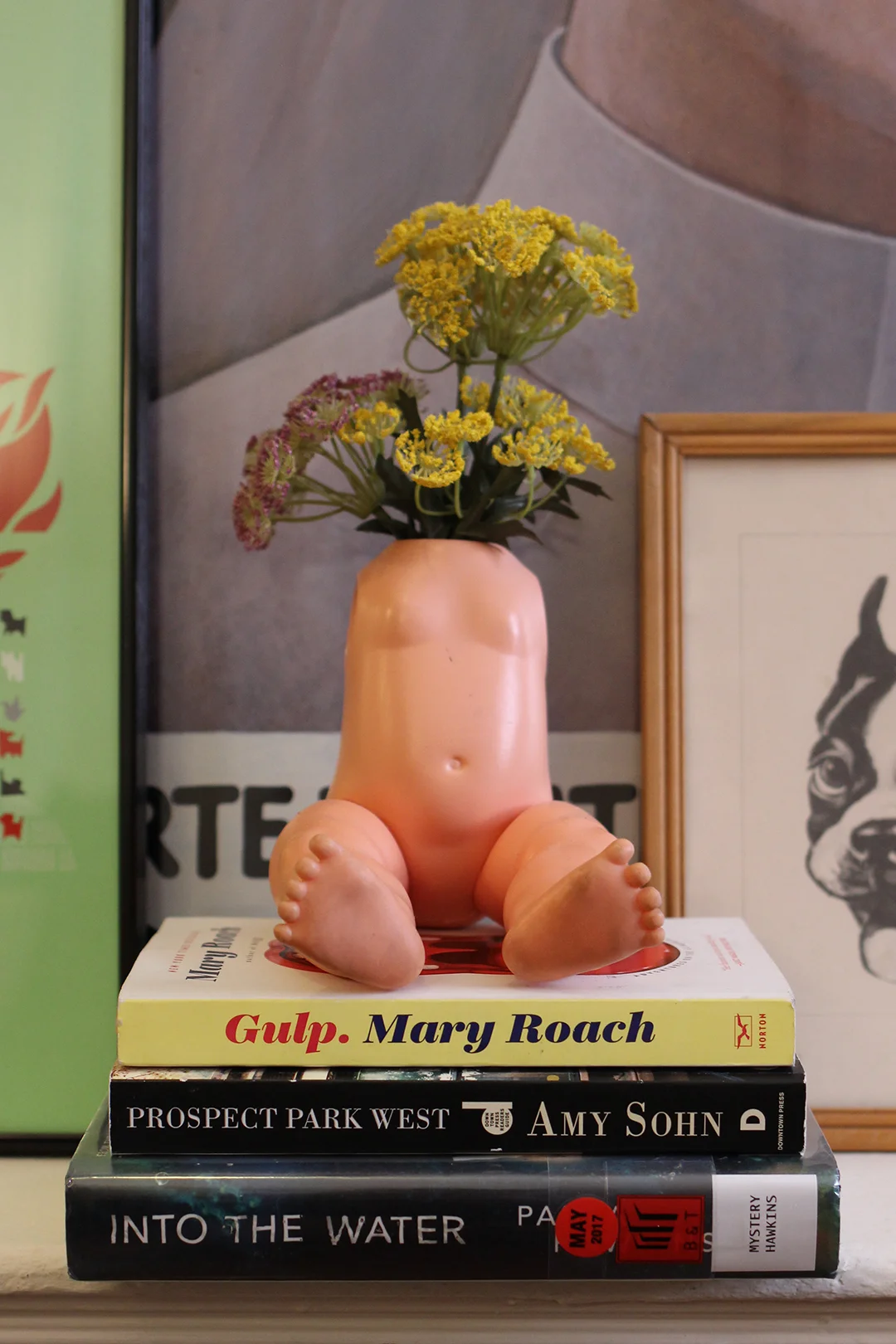Recent Reads
Gulp: Adventures on the Alimentary Canal, by Mary Roach
Stiff is one of my all-time favorite books (I've read it twice, and will probably read it again someday), but somehow this is only the second Mary Roach book I've read. I've owned Spook ever since I worked at W. W. Norton and made use of my 70% discount (Roach is a Norton author), and Gulp sat on my shelf for a few years before I finally started it. Roach is famous for her ability to write about science and strange topics with wit and a million humorous footnotes and I'm sure she could make almost anything seem interesting. Gulp is about the wonders of the digestive system (a subject I already find fascinating) and I was a little grossed out, a little surprised and realized that I'm probably wasting my sensitive nose not being a professional taste-tester.
Into the Water by Paula Hawkins
I devoured The Girl on the Train (the movie was just ok), so I had high hopes for Paula Hawkins's second thriller. Into the Water, about a small England town plagued with suicides (or are they murders??) and shady, unreliable narrators, kept me just as interested (and in the dark) as The Girl on the Train. Although I did eventually figure it out, surprise-averse me simultaneously loves and hates books that keep me guessing—I was so frustrated by Gone Girl that I flipped forward just so I could spoil the twist and relax while I kept reading (I'm a monster, I know). I read so many borderline-dry medical and nonfiction books that a novel like this feels like a palate cleanser for my brain and I eagerly await her next book (and the inevitable Into the Water movie).
Prospect Park West, by Amy Sohn
I found this book in the dollar section of the Strand, and bought it based solely on its title. I still lived in Brooklyn at the time, and Prospect Park West was my regular running route. I didn't expect this novel to be high brow classic literature, and I love the occasional gossipy fluff book (especially ones about New York). Unfortunately this book was just mostly trash, and not the entertaining kind. I enjoyed the neighborhood references, and it did make me miss living so close to Prospect Park, but the characters are reprehensible and mostly uninteresting despite Sohn's attempts at writing provocatively (the opening chapter has a mother masturbating while her young daughter is napping).
I can't remember the last book I disliked as viscerally as this one, and I slogged through it hoping for some conclusion, which unfortunately never came. I was tempted to leave the book on the subway platform where I finished it or donate it to one of those little free libraries in Park Slope, but it seemed mean to thrust this garbage book onto another unsuspecting Brooklynite.
The Lonely City: Adventures in the Art of Being Alone, by Olivia Laing
I saw this book on Goodreads and reserved it at the library based only on the title. I've always been a lonely person—even when I'm in a relationship and surrounded by good friends—but I've never really thought much about lonliness as a state of being. This book was different than I expected, and it took a while before I was fully invested, but the different artists that she presents as case studies in loneliness—Andy Warhol, Henry Darger, David Wojnarowicz and others—were so fascinating that I'm glad it wasn't a dry, scientific explanation of the mechanics of loneliness, but something much deeper.
Morgue: A Life in Death, by Vincent Di Maio and Ron Franscell
Vincent Di Maio, MD is the son of a famous New York City medical examiner and a forensics expert himself, who consulted on some fascinating and famous cases including the Trayvon Martin shooting, the exhumation of Lee Harvey Oswald and an investigation into the possibility that Vincent Van Gogh didn't commit suicide, but was accidentally murdered. I flew through this book, and I've read lot of similar collections but this was definitely one of the best (up there with Working Stiff). Di Maio does sound a bit full of himself and self righteous at times, but he has the credentials to back him up. The cases themselves—the infamous as well as the ones I'd never heard of before—are all fantastic mysteries, and he retells them with such detail that you almost forget these are real people and real crimes.


